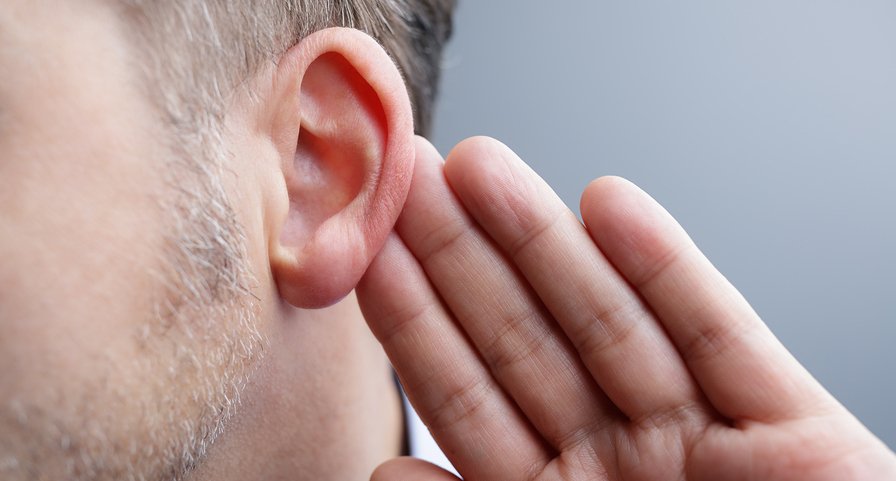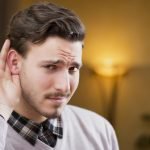Hearing loss is a very common problem, and not just among the elderly. In fact, approximately 30 million people 12 or older in the United States suffer from some hearing loss in both ears according to the National Institute on Deafness and Other Communication Disorders. And while damage from listening to music and other loud noises is certainly part of the problem in many cases, it would seem there are other causes as well. New research suggests that one of these contributing factors might be something you’d never suspect: iron deficiency anemia.
The study, which took place at the Pennsylvania State University College of Medicine in Hershey, found that having iron deficiency anemia is associated with an increased risk of experiencing hearing loss.1 Schieffer, Kathleen M.; et al. “Association of Iron Deficiency Anemia With Hearing Loss in US Adults.” JAMA Otolaryngology-Head & Neck Surgery. 29 December 2016. Accessed 8 January 2017. http://jamanetwork.com/journals/jamaotolaryngology/article-abstract/2594264. The subjects were 305,339 men and women living in the United States. Tracked between 2011 and 2015, the participants ranged in age from 21 to 90, and had an average age of 50.
All of the volunteers’ medical records were analyzed to find diagnoses of hearing loss. A total of 1.6 percent of the subjects had some degree of identified hearing loss. However, when the researchers checked that against a diagnosis of iron deficiency anemia, they found among those with anemia the rate of hearing loss jumped to 3.4 percent. While that still might not sound like a huge amount, it represents more than twice the risk of hearing loss for individuals with anemia. Iron deficiency anemia is a disorder of the blood in which sufferers have low levels of iron and can’t produce enough red blood cells.
The investigators then further broke the grouping of patients down by their type of hearing loss. They considered sensorineural hearing loss, which occurs when there is damage to the inner ear or the nerves that travel between the inner ear and brain and is permanent; conductive hearing loss, which is a problem of sound conduction from the outer ear to the middle ear or eardrum; and mixed hearing loss, which involves both types of problems.
You might think that sensorineural hearing loss would have nothing to do with anemia, that it would be entirely related to damage from being exposed to loud sounds. As it turns out, you would be wrong. Sensorineural hearing loss had a stronger correlation to anemia than conductive hearing loss in this study. The risk of sensorineural hearing loss was a whopping 82 percent higher in those with iron deficiency anemia compared to their peers without the disorder. In addition, the participants with anemia faced a 2.4 times greater likelihood of combined hearing loss versus those without anemia.
The study was not designed to prove cause and effect, but to determine whether a link exists between the two issues. So while we cannot say from the results that iron deficiency anemia makes one more susceptible to hearing loss, this research certainly provides enough evidence to say that the conditions are likely related.
Why would a blood disorder contribute to hearing loss? The culprit may be the lack of iron. When anemia strikes, less hemoglobin is present in the red blood cells, preventing adequate amounts of oxygen from reaching tissues throughout the body. In the case of our auditory system, that may result in restricted blood flow to the inner ear. Plus, a lack of sufficient iron can harm or kill the delicate sensory hair cells of the inner ear, or simply make them more susceptible to damage from loud noise, and if that occurs, the damage is irreversible and hearing loss will be permanent.
Therefore, even if your hearing is perfect, it’s worth your while to avoid developing iron deficiency anemia. This condition can cause fatigue, shortness of breath, dizziness, and other symptoms and may also contribute to heart failure and pregnancy problems. The good news is that anemia can generally be prevented or alleviated through some dietary changes.
Foods rich in iron include red meat, poultry, and pork, which are the easiest forms of iron for the body to absorb. If, however, you don’t eat meat, there are plenty of other options. Beans, peas, dark green leafy vegetables, and dried fruits are also good sources of iron. Plus, if you combine iron-rich foods with those high in vitamin C, you will improve your ability to absorb more iron. Consuming these foods regularly should resolve your anemia and hopefully go a long way toward preventing hearing loss. Just don’t forget to turn your volume down too!
References
| ↑1 | Schieffer, Kathleen M.; et al. “Association of Iron Deficiency Anemia With Hearing Loss in US Adults.” JAMA Otolaryngology-Head & Neck Surgery. 29 December 2016. Accessed 8 January 2017. http://jamanetwork.com/journals/jamaotolaryngology/article-abstract/2594264. |
|---|












When it comes to any sort of
When it comes to any sort of deficiency, it’s always a good idea to figure out the root cause of that deficiency. An iron deficiency could come from malabsorption–which suggests a digestive issue that needs to be corrected before the deficiency can be taken care of–or from excessive blood loss like from a menstrual period. Excessive blood loss in that case could be related to estrogen dominance, which could also point to a digestive issue since the digestive tract is tasked with eliminating excess estrogen.
How then would you target
How then would you target this type of digestive disorder?
Could inability to process
Could inability to process iron be an issue here? I had high ferritin levels recently – and I was taking vitamin C with meals including meat. I stopped doing that. I have read some articles/books that say high iron is an issue as you age (60’s) – and that is exactly my age. I started taking Ferrum Phos homeopathic believing it could possibly be an issue with processing iron and that it could resolve the issue (my last ferritin test was in the 200s (400’s previously).